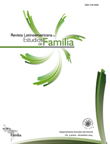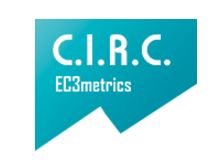Autores/as
Resumen
Resumen: El presente artículo analiza el modo en el que las familias rurales del municipio de Marmato (Caldas, Colombia) sostienen la ideología y las prácticas radicionales de género en torno al trabajo de cuidado alimentario en el ámbito del hogar y las tensiones familiares que modifican los fundamentos de la división sexual del trabajo; a fin de comprender las situaciones o los aspectos que modifican las relaciones entre los sexos y la construcción de las identidades. Para ello, la recolección de información combinó diversas técnicas cualitativas: entrevistas a grupos familiares, observaciones de los procesos de alimentación en el hogar y registro del tiempo ―diferenciado por sexo y edad― en la ejecución de las tareas asociadas a estos.
Los resultados evidencian que en la función socializadora de las familias existe un continuum de ideologías y prácticas que reproducen y modifican el modelo de división sexual del trabajo que sostiene las desigualdades de género. Las condiciones políticas y socioeconómicas del contexto de carácter tradicional mantienen la ideología del cuidado alimentario como tarea central y casi exclusiva de las madres/ esposas, al igual que la atribución de la responsabilidad de formar y preparar a los sujetos para insertarse en la vida social. Como procesodinámico, la reproducción sociocultural se ve confrontada por situaciones particulares de vida y reordenamientos en la organización familiar y social que impelen a los sujetos y a los grupos familiares, a generar formas de actuación que distan del orden y los aprendizajes normativamente instituidos.
Palabras clave
Citas
Bonilla, Álvaro y Sergio Trujillo. 2005. Análisis comparativo de cinco teorías sobre el desarrollo moral. Bogotá: Universidad Javeriana.
Contreras, Jesús y Mabel Gracia. 2005. Alimentación y cultura. Perspectivas antropológicas. Barcelona: Ariel.
Comins, Irene. 2008. La ética del cuidado y la construcción de la paz. Madrid: Fundación Cultural de Paz, CEIPAZ. S.a. 1996. Cuadernos de Familia No. 8. Manizales: Universidad de Caldas.
DANE. 2005. Censo de población.
http://www.dane.gov.co/daneweb_V09/index.php?option=com_ content&view =article&id=307&Itemid=124 (Recuperado el 4 de Marzo de 2010).
Daly, Mary & Jane Lewis. 2000. The concept of social care and the analysis of contemporary welfare states. British Journal of Sociology 51 (2): 281-298.
DeVault, Marjorie. 1991. Feeding the Family. The social organization of caring as gendered work. Chicago: Chicago University Press.
Esquivel, Valeria. s.f. La economía del cuidado: un recorrido conceptual. Documento de trabajo, Universidad Nacional General Sarmiento.
Gilligan, Carol. 1985. La moral y la teoría. Psicología del desarrollo femenino. México: Fondo de Cultura Económica.
Gracia, Mabel. 1996. Paradojas de la alimentación contemporánea. Barcelona: Icaria Editorial, Institut Català d’Antropología.
Mennell, Stephen, Anne Murcott & Anneke van Otterloo. 1992. The sociology of Food: Eating, Diet and Culture. London: Sage Publications.
Restrepo, Dalia. 1999. Desigualdad de género. Privilegios y derechos culturales en familias de Caldas. Premio Nacional de Ensayo Académico, Alberto Lleras Camargo. Bogotá, ICFES.
Salazar, Edy. 2004. Cuidado y género: debate moral. Bogotá: Centro Editorial Javeriano.
Tronto, Joan C. 1993. Moral Boundaries. A political argument for an ethic of care. New York: Routledge.
Zelizer, Viviana. 2009. La negociación de la intimidad. Buenos Aires: Fondo de Cultura Económica.

 PDF
PDF
 FLIP
FLIP





















